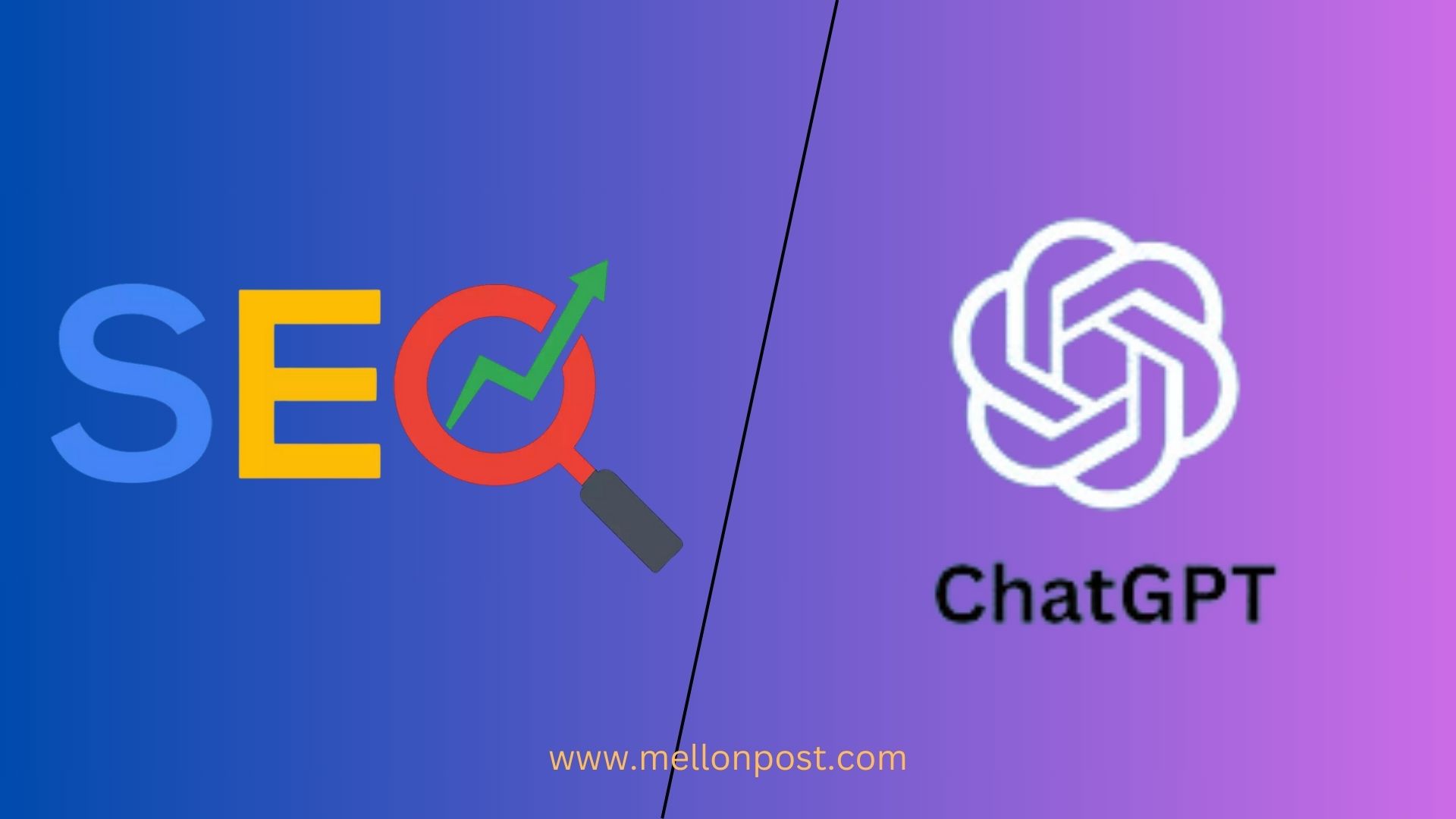
The Future of SEO in a World Where ChatGPT Replaces Search Engines
Table of Contents
The Future of SEO in a World Where ChatGPT Replaces Search Engines.
The digital landscape is continually evolving, with the latest paradigm shift being the rise of AI-powered conversational models like ChatGPT.
These tools have shown remarkable potential in various domains, from answering queries to creating content, leading to speculation about the future of traditional search engines. What happens to SEO if ChatGPT—or similar AI models—render search engines obsolete? This blog will explore the potential implications, opportunities, and challenges in such a scenario.
The Evolution of Search and the Rise of AI
The journey of search engines, from the early days of rudimentary directories to the sophisticated algorithms of Google, has been pivotal in shaping the internet. SEO (Search Engine Optimization) emerged as a crucial discipline, helping businesses and individuals alike to gain visibility in an increasingly crowded digital space.
However, the rise of AI-powered models like ChatGPT has started to challenge the status quo. These models can generate human-like responses and even engage in complex conversations, offering a more interactive and personalized experience than traditional search engines. As they become more integrated into daily life, the possibility of them replacing search engines entirely is no longer far-fetched.
In this new landscape, SEO professionals and content creators are left pondering a fundamental question: What does the future hold for SEO if search engines are replaced by AI-driven conversational models?
Understanding the Shift: From Search Engines to Conversational AI
The Limitations of Traditional Search Engines
While traditional search engines have become incredibly powerful, they are not without their limitations:
Information Overload: Search engines often return thousands or even millions of results for a single query, leaving users to sift through the clutter.
Keyword Dependency: Success in search engines often hinges on the use of specific keywords, which can lead to manipulation and over-optimization.
Lack of Context: Search engines sometimes struggle to understand the nuance and context behind a user’s query, leading to irrelevant results.
The Rise of Conversational AI
Conversational AI models like ChatGPT address many of these limitations by:
Providing Direct Answers: Instead of returning a list of links, AI models deliver direct, concise answers, reducing the need for users to visit multiple websites.
Contextual Understanding: These models can interpret and respond to queries with a deeper understanding of context, making them more effective in addressing complex or ambiguous questions.
Interactive Experience: Users can engage in a back-and-forth conversation with AI, refining their queries and receiving more tailored responses.
As these advantages become more apparent, the appeal of traditional search engines may diminish, leading to a significant shift in how we access and consume information.
The Implications for SEO: Challenges and Opportunities
Challenges for Traditional SEO Practices
If conversational AI replaces search engines, many traditional SEO practices could become obsolete:
Keyword Optimization: The importance of keywords in driving traffic would decline, as AI models focus on the intent and context behind a query rather than specific terms.
Link Building: With AI delivering direct answers, the emphasis on backlinks and domain authority could fade, reducing the effectiveness of traditional link-building strategies.
Content Structure: SEO best practices currently emphasize structuring content to cater to search engine algorithms. This approach may need to be rethought in a world where AI is the primary gateway to information.
New Opportunities in AI-Driven SEO
Despite these challenges, the rise of AI opens up new avenues for SEO:
Optimizing for AI Models: Just as businesses currently optimize for search engines, they could begin to optimize content for AI models. This might involve focusing on natural language, clarity, and relevance to ensure that AI models accurately interpret and use the content.
Conversational SEO: As users engage with AI through conversation, there could be a growing need for content that supports and enhances these interactions. This might include creating content that anticipates user questions and provides comprehensive, conversational responses.
Rich Media and Interactivity: With AI becoming more integrated into various platforms, there may be a greater emphasis on rich media (videos, infographics, interactive elements) that AI can leverage to provide more dynamic and engaging responses.
The Role of Content Creation in an AI-Driven World Where ChatGPT Replaces Search Engines
The End of Content for Clicks
In a world where AI provides direct answers, the era of content designed purely for clicks and page views could come to an end. Instead, the focus may shift to creating content that adds genuine value and can be utilized by AI models to provide accurate and helpful responses.
Quality Over Quantity
Content creators may need to prioritize quality over quantity, as AI models are likely to favor well-researched, authoritative sources. This shift could lead to a reduction in the volume of content produced, but an increase in its overall quality and relevance.
The Importance of Expertise and Authority
AI models rely heavily on the data they are trained on, which means that content from authoritative and trustworthy sources will be more likely to be surfaced. This could lead to a greater emphasis on establishing and demonstrating expertise within specific domains.
The Future of Digital Marketing and Advertising
The Evolution of Advertising
The replacement of search engines with AI could revolutionize digital advertising. Instead of traditional pay-per-click (PPC) ads, businesses might need to explore new advertising models tailored to AI platforms. This could include:
Sponsored AI Responses: Businesses could pay to have their products or services featured in AI-generated responses, much like they currently pay for top placement in search results.
Contextual Advertising: Ads could become more contextually integrated into AI conversations, providing relevant product or service recommendations based on the user’s query.
The Role of Data and Privacy
As AI models become more central to our digital experiences, the importance of data and privacy will grow. Marketers will need to navigate these issues carefully, ensuring they comply with regulations and respect user privacy while still gathering the data necessary to personalize and optimize AI-driven interactions.
New Metrics for Success
With the decline of traditional search engines, existing metrics like page views and click-through rates may become less relevant. Instead, businesses might focus on new KPIs, such as:
AI Visibility: How frequently and prominently a brand or product is featured in AI-generated responses.
User Engagement: The depth and quality of interactions between users and AI models, and how effectively these lead to conversions.
Content Relevance: The degree to which content created by a business is utilized by AI models to provide accurate and helpful responses.
Preparing for the Future: Strategies for Businesses and Marketers
Adapting to Change
Businesses and marketers will need to stay agile and adapt to the rapidly changing digital landscape. This might involve:
Investing in AI Optimization: Just as SEO became a critical skillset in the era of search engines, optimizing content for AI models will become essential.
Fostering Innovation: Companies should be prepared to experiment with new formats and strategies, from interactive content to AI-driven advertising models.
Building Trust and Authority: As AI becomes a primary source of information, businesses will need to focus on establishing and maintaining trust, authority, and credibility within their industries.
Collaboration with AI Developers
Another key strategy could involve closer collaboration with AI developers and platforms. By understanding how AI models work and what they prioritize, businesses can create content that is more likely to be utilized and featured by these models.
Embracing a User-Centric Approach
Finally, the shift towards AI-driven interactions underscores the importance of a user-centric approach. Businesses that prioritize the needs and preferences of their users—and create content that genuinely adds value—will be better positioned to succeed in this new landscape.
Conclusion: A New Era for SEO and Digital Marketing Where ChatGPT Replaces Search Engines
The potential replacement of search engines with AI models like ChatGPT represents a profound shift in the digital landscape. While this change poses significant challenges for traditional SEO practices, it also offers exciting new opportunities for innovation and growth.
As we move towards this new era, businesses and marketers will need to rethink their strategies, focusing on optimizing content for AI, embracing new advertising models, and prioritizing quality, authority, and user engagement. Those who can adapt to these changes will be well-positioned to thrive in a world where AI, rather than search engines, is the gateway to information.
Ultimately, the future of SEO in an AI-driven world is one of evolution, not extinction. While the tools and tactics may change, the underlying goal—connecting users with the information, products, and services they need—will remain the same. By staying ahead of the curve and embracing the opportunities presented by AI, businesses can continue to achieve success in this rapidly changing digital landscape where ChatGPT Replaces Search Engines.
Continue reading: Windows Vs Linux Operating Systems Which Is Better?

